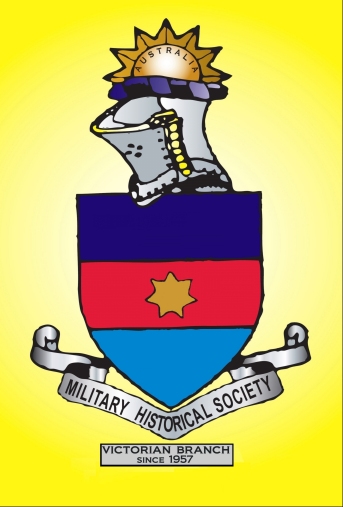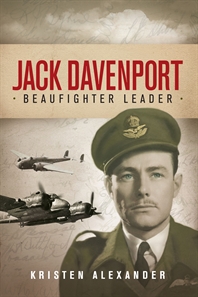A pilot and a hero with a mission
Jack Davenport was a member of the Council of the Australian War Memorial when I started working there in the early 1980s. Elegant, even dapper, lively and amused, nevertheless Jack Davenport struck me as a remote man, as if he were a member of a club I could never join. On Remembrance Day, when I saw his medals for the first time, I learned the type of club. The medals included the Distinguished Flying Cross and Bar, the Distinguished Service Order and the George medal. On the civilian side he was an Officer in the Order of Australia (later upgraded to Companion).
Jack Davenport was the businessman of the Council, specifically recruited by Noel Flanagan, one of the memorial's better directors, to get the money side right. Jack was a man of immense business experience and apparent wealth. The first shock for me in this fine, indeed startling biography was to discover the wretched start he had in life. He was a boy of the Depression who,with his younger brother Keith, actually fought off the bailiffs in a lane beside their home. Despite the boys' efforts the family were evicted anyway. There were more than 20 moves of residence in Jack's childhood.
This was a common background for the men who would fight for Australia in World War II and you have to wonder why, thus battered, they would go away to fight for their country. There is a revealing photograph in this book of the Class 3D at Sydney High School in 1935, Jack's last year at School. The boys gaze at the camera in a somewhat sullen way. Almost wizened, they look much older than their 14 or 15 years. But it is their clothing that tells. A couple of them are in correct school uniform, most are dressed from scraps and hand-me-downs. One wears that ghastly, heavy cloth type of overcoat that no one under 50 would recognise. These boys are all poor. Jack Davenport never forgot.
The war rescued many of them from poverty and grime and in that sense could be welcomed. Yet Jack had two uncles who had served in the Australian Imperial Force in the first war and he heard enough from them to make him want to avoid the trenches, the mud and the horror. Besides, the air force had glamour, adventure and excitement. It would be safer, the older men said, than the trenches. One of the cruellest miscalculations imaginable. Having completed his training as an airman in Australia, Canada and Britain, Jack Davenport was eager for his first operational posting. He was rated "above average" as a pilot by the chief flying instructor and posted to an RAAF squadron in Bomber Command. Of every 100 airmen posted to Bomber Command, 51 would be killed or injured in combat operations, 12 would be killed or injured in non-combat operations and 12 would be taken prisoner of war. Only 25 of the 100 would survive. The odds were simply awful. When Jack Davenport arrived he was just shy of 22 years of age - an officer, a skilled pilot, responsible for the fate of his crew and not yet 22. In training he might have died, there was at least one extremely close shave, now he would be in action, where the odds were far worse. This is not a book to be rushed because readers need to think these things through, so remote are they from the life of an Australia today. The poverty, the bravery, the generosity, the acceptance at such a young age.
This is where air force history is so different from the story of soldiers. The canvas for the airman is so much smaller, virtually the cockpit of an aircraft, the responsibility for your own life and the lives of only a few others so intense.
It is Kristen Alexander's considerable achievement to help the reader experience this. She writes with empathy and understanding, in crisp prose, building a sense of awe for her subject. She also has a real understnding of the technical details of the various aircraft flown, and this helps build the tension in the reading. Jack's first operational aircraft, the Hampden, was a difficult aircraft to fly. Even dangerous. Yet that was what these airmen did - accept what they were given to fly, accept the mission, and do their very best. Night after night.
Jack Davenport survived; he prospered as a pilot and a leader of men. He showed great skill as a pilot, extraordinary bravery and devotion to his men, and remarkable luck.
He came back to Australia after the war as a married man, never to fly again, but with burning objectives for the rest of his life; one of those was to ensure greater understanding of what these airman did and achieved. After his death, Kristen Alexander has carried the flame forward in a way I suspect might have embarrassed or bemused its subject.
Jack Davenport joined the Memorial's Council to help tell the story of Australians at war; an important responsibility as he saw it. He continued throughout his life to help those with whom he had served who needed his help. Perhaps, in a way, still fighting the bailiffs. But he knew, better than we ever could, that he was a member of a club to which we had no access. Kristen Alexander has opened the door of that club just a fraction, for the non-members. That is a considerable achievement.
By Michael McKernan who is a Canberra historian.
About Kristen Alexander
Kristen Alexander is author of the critically acclaimed Clive Caldwell, Air Ace (Allen & Unwin 2006). She and her husband own Alexander Fax Booksellers, which specialises in Australian military history. She has held the position of Federal Secretary of the Military Historical Society since September 2003. Kristen lives in Canberra and is currently researching her third account of Australian pilots in WWII.


